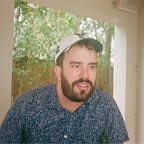The New RS 500: #500 Arcade Fire — Funeral
Release Date: September 14, 2004
Label: Merge Records
Have I heard this album before? Many times, yes.
2003 List Ranking: N/A; 2012 List Ranking: 151*; Does the move feel appropriate?: Yeah. Placing this album in the top 200 albums ever one year after its release feels like about as good an example of recency bias as I can think of.
*Right off the bat, I want to touch on one of my major frustrations with the updates we’ve gotten from this list. Updating a “greatest” album of all time list makes sense, I suppose, if you are removing albums and adding in new ones, with maybe slight adjustments to the order of albums in close proximity. Dropping albums hundreds of spots also somewhat makes sense, if it’s something that the narrative has changed on a lot in the intervening decade since the last update. What really bothers me, and will come up a lot in the weeks/months/years to come, is when albums that are older than my parents suddenly jump up hundreds of spots in the ranking over the course of one decade. What the hell changed about, idk, a Led Zeppelin album that has been out almost 50 years from when this list was last published, over 40 years after the band has been broken up? It’s bewildering. Anyways, I digress.
Is This Album the 500th Greatest Album of All Time? No, but it’s maybe closer than I expected after revisiting it.
Review: You forget, what with the obsession that the band has had on their last few records with synths, just string and drum-focused Funeral is. Also, there’s an earnestness from Win Butler’s vocals that would go MIA on anything after Neon Bible that helps make Funeral feel like one of the more essential albums from the Lollapalooza-core bands of the period. The mid-2000s were full of swaggering New York bands that ripped off Guided By Voices and Joy Division a little too much. Arcade Fire, perhaps due to the variety of backgrounds its seven band members had, strayed from that path and seemed more interested in strings — as opposed to power chords and bass — driving songs like “Neighborhood #3 (Power Out),” “Wake Up” and “Crown of Love,” which features a fairly convincing Roy Orbison impression from Butler. The true star of this album, and an element of the band that doesn’t appear on the follow-up albums nearly as much as it should, is Butler’s wife, Régine Chassagne, the band’s multi-instrumentalist and secondary singer. The lush instrumentation and vocals from Chassagne on “Haiti” and “In the Backseat” are highlights that many of the band’s peers failed to ever touch. The band would go on to make some unfortunate Springsteen and U2 pastiche later on, but for this brief moment, Arcade Fire felt essential and fresh, exposing listeners to a world of influences that weren’t getting their time in the spotlight from other bands.
